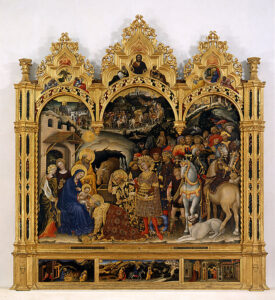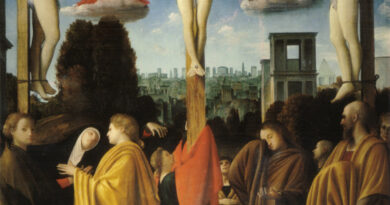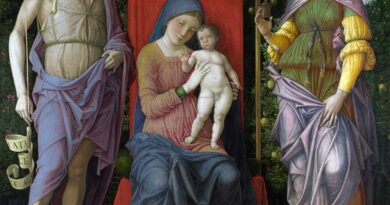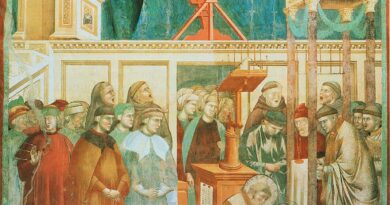Solemnity of Epiphany
Massimo Palombella

The term ‘epipháneia‘ was used by the Greeks to indicate the action or manifestation of a deity (through miracles, visions, signs, etc.).
In the 3rd century, Christians began to use the term ‘Epiphany’ to indicate the divine manifestations of Jesus. Among these manifestations, three were particularly emphasised: the adoration by the Magi (Mt 2:1-12), the Baptism of Jesus in the Jordan (Mt 3:13-17) and the first miracle that took place in Cana of Galilee (Jn 2:1-11), as the antiphon to the Magnificat of the second Vespers of today’s solemnity clearly describes (“Tribus miraculis ornatum diem sanctum colimus: hodie stella magos duxit ad praesepium; hodie vinum ex aqua factum est ad nuptias; hodie in Iordane a Ioanne Christus baptizari voluit, ut salvaret nos, alleluia” [Three wonders we celebrate on this holy day: today the star led the Magi to the crib; today water is changed into wine at the wedding; today Christ is baptised by John in the Jordan for our salvation, alleluia]).
Like the Magi, we too have to follow the star and move, change, enter into a logic where being ‘still’ should not exist.
The only ones who never move are those who want to consolidate their power, as Herod did and as we are all subtly tempted to do. In fact, not changing one’s mind, not changing one’s judgements about reality, clinging to the security of ‘tradition’, of things ‘certain and safe’, basically implies a great fear of reality, an inadequacy to real life, of necessary separations not made. An area of our existence where all of us, if we are not vigilant, are not a little tempted.
To truly live one must follow the star, set out on the journey. We do not know how long, arduous or pleasant the journey will be, and where the star will lead us. The only thing that is certain is that, like the Magi, we will experience great joy at the end of the journey.
In the Ambrosian Rite, the entrance antiphon for today’s celebration is taken from the book of Revelation (Rev 21:23-24) with the following text:
“Cívitas non eget sole neque luna, ut lúceant ei:
quoniam cláritas Dei illùminat eam.
Et ambulábunt gentes in lumine ejus:
et reges terræ áfferunt claritatem suam in eam.”
(The heavenly city is illuminated neither by sun nor moon,
but the glory of God gives it light.
In its splendour shall the nations walk,
and the kings of the earth shall come and bring their treasures).
The attached music, in Ambrosian Chant, is taken from the Antiphonale Missarum Iuxta Ritum Sanctæ Ecclesiæ Mediolanensis, published in Rome in 1935, which, to date, is the only ‘official’ book of Ambrosian Chant for the Eucharistic Celebration. The live performance is by the Cappella Musicale del Duomo di Milano at the Pontifical Celebration on 6 January 2023.
A blessed Feast and heartfelt greetings.


